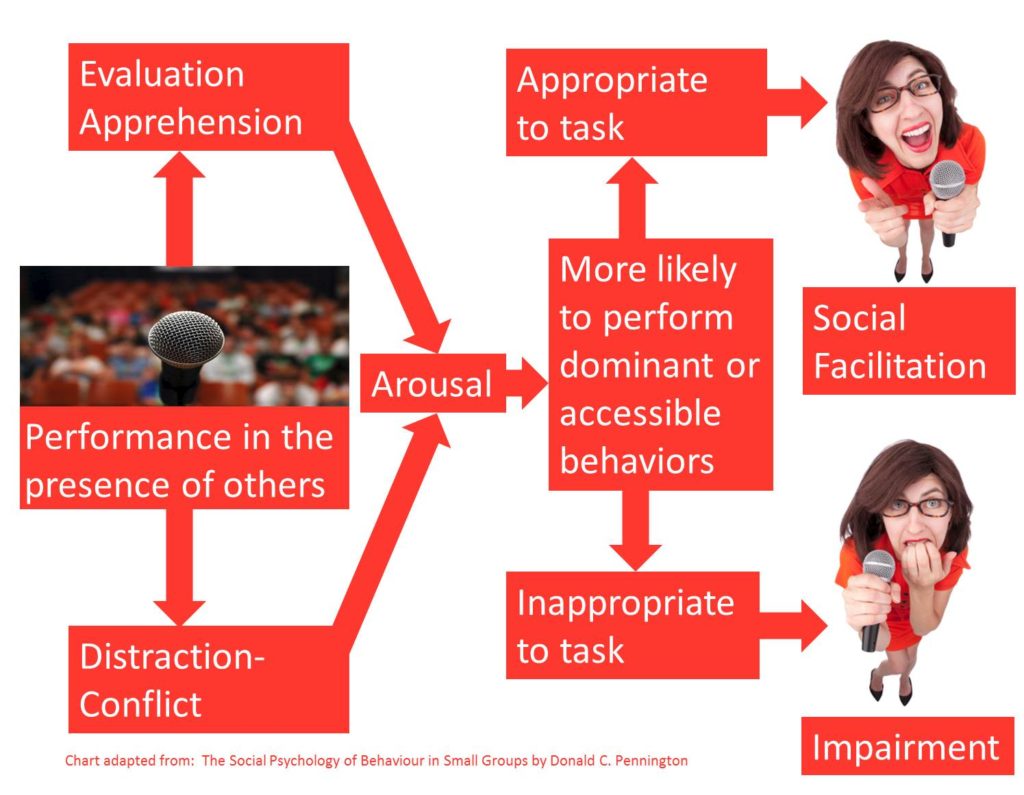Do you want to shine in front of an audience? To perform at your best?
Imagine that you have been a public speaker for 10 years and that you are about to speak in front of a large audience. Do you think your performance will be enhanced or worsened compared to when you practiced alone?
Odds are, you will shine.
Now imagine that you have been asked to speak in front of a large audience and you never have done so. Do you think your performance will be better or worse in front of an audience?
Odds are, you will choke.
Shining or choking largely comes down to two factors:
1. Experience
2. The audience arousal effect
Essentially, any task, including public speaking, which is well learned and with which you have a long history of experience is likely to be enhanced in front of an audience.
Social psychologists call this “social facilitation.”
Evidence for social facilitation abounds, even with non-humans. Rats eat faster when in a cage with other rats and ants in a sandbox dig more when with other ants.
On the flip side, a task which is not well learned or one with which you do not have a long history of experience is likely to be impaired in front of an audience.
Why does an audience affect your performance?
In a book I’m reading, The Social Psychology of Behaviour in Small Groups, by Donald Pennington, two theories of the “audience arousal effect” are offered:
1. Evaluation apprehension–your concern that you may be evaluated.
2. Distraction-Conflict Theory–the audience acts as a distraction. Conflict arises as to whether to pay attention to the audience or to the task at hand.
The graphic below summarizes the shine vs. choke response:
So, what do you need to do to shine? To have “social facilitation” and NOT “impairment?”
The number one thing you need to do is to gain experience speaking in front of an audience.
Or, as 2001 World Champion of Public Speaking Darren LaCroix says, “Stage time. Stage time. Stage time.”
Where can you get that stage time?
- At Toastmasters (Communication and leadership organization with local clubs)
- At work–volunteer to give presentations
- At conferences
- At volunteer organizations–speak in an organization you belong to or volunteer to speak on your area of expertise at service organizations, such as Rotary
Other ideas?
Prepare to shine!


